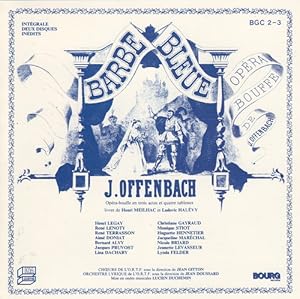Most scholars agree that Perrault was being tongue in cheek when he added his moral to the end of Bluebeard that condemned the wife's curiosity over the husband's serial killing. Yet despite his intentions, the public eventually interpreted this fairy tale as a literal warning against female curiosity. The story was spread and retold in the form of children's chapbooks, all carrying very heavy didactic and preachy lessons, warning girls of the consequences if they were not completely obedient.
Yet with any popular phenomenon, the Bluebeard story eventually went the way of parody and satire, which actually provided the most healthy way of looking at the story in decades. Bluebeard became a popular subject for English Harlequinades and Pantomimes. Harliquinades followed a series of stock characters through versions of the same plot, where two lovers try to find happiness despite the scheming of fathers and other suitors.
Harlequin and Columbine by Degas
 Being comedies, Bluebeard the character was seen in a different light. He was made fun of and audiences laughed at his antics. When the fairy tale characters were fit into traditional roles-hero verses villain; wanted verses unwanted suitor-it became obvious that Bluebeard was indeed a villain.
Being comedies, Bluebeard the character was seen in a different light. He was made fun of and audiences laughed at his antics. When the fairy tale characters were fit into traditional roles-hero verses villain; wanted verses unwanted suitor-it became obvious that Bluebeard was indeed a villain.Gone from the pantomimes were the heavy preachy language. In the words of Michael Booth, "Thus the harliquinade was...psychologically escapist, offering audiences a release from sadistic impulses...Melodrama, however, idealized morality...The same audiences enjoyed both genres, and both found common ground in the hostility toward constituted and inherited authority. In melodrama this was largely a matter of class conflict, bun in pantomime the same hostility manifested itself in vicious treatment of an oppressive father-figure."
 The Bluebeard plot was altered in many ways as it inspired multiple productions. Extra supernatural characters such as fairies or devils may have been inserted as they engineered Bluebeard's downfall. In Offenbach's opera Bluebeard, the wife is absolved from all guilt. She does not transgress by using a key she was forbidden not to, but Bluebeard orders his alchemist to poison each of his wives as soon as he desires another. The alchemist, however, has secretly been keeping the wives alive, and at the end they are all released and marry courtiers.
The Bluebeard plot was altered in many ways as it inspired multiple productions. Extra supernatural characters such as fairies or devils may have been inserted as they engineered Bluebeard's downfall. In Offenbach's opera Bluebeard, the wife is absolved from all guilt. She does not transgress by using a key she was forbidden not to, but Bluebeard orders his alchemist to poison each of his wives as soon as he desires another. The alchemist, however, has secretly been keeping the wives alive, and at the end they are all released and marry courtiers.Yet in this case, the more forward thinking about Bluebeard and the story's meaning did not translate into long term renewed thinking about the fairy tale. Children's versions were still very heavy handed in insisting on the "no curiosity" moral. Bluebeard as a play was even done at home, in productions where the whole family (including children) were involved. Those scripts followed the traditional plot and morals, such as the title to Francis Gower's 1841 play Bluebeard; or, Dangerous Curiosity and Justifiable Homicide. (Justifiable?!?!?)
Pantomimes were actually very common at the holidays, considered traditional parts of Easter and Christmas. So for a traditional English Easter, why not gather all the kids together to make this suggested backdrop for the Bloody Chamber??
*Black and white illustrations by A. H. Watson
*All information from Casie E. Hermansson's Bluebeard: A Reader's Guide to the English Tradition






As someone who's educated as a librarian, I dislike any story that preaches against curiosity. Curiosity is good! Curiosity is important! It's one of the best things someone can have. Curiosity is the desire to learn, to explore, to read, to experience new things, to ask questions and to figure things out. Without curiosity, the world would not have progressed as far as it has. Also, curiosity has rarely, if ever, killed a cat. I can understand suggesting people mind their own business rather than meddling in the affairs of others (which is not a good lesson for "Bluebeard", by the way), but blanket morals against curiosity are just wrong.
ReplyDeleteAmen, I couldn't agree more!
DeleteThere's a rather bizarre Irish version of Bluebeard, wish I could remember where I read it, in which the wife manages, with the help of animals she has befriended, to clean the key before her husband gets back. He then says something like, "Oh, well done, you obeyed me," and they live happily ever after! The woman with the serial killer!
ReplyDeleteI've never heard of that! And how...odd and dissatisfying!
ReplyDelete